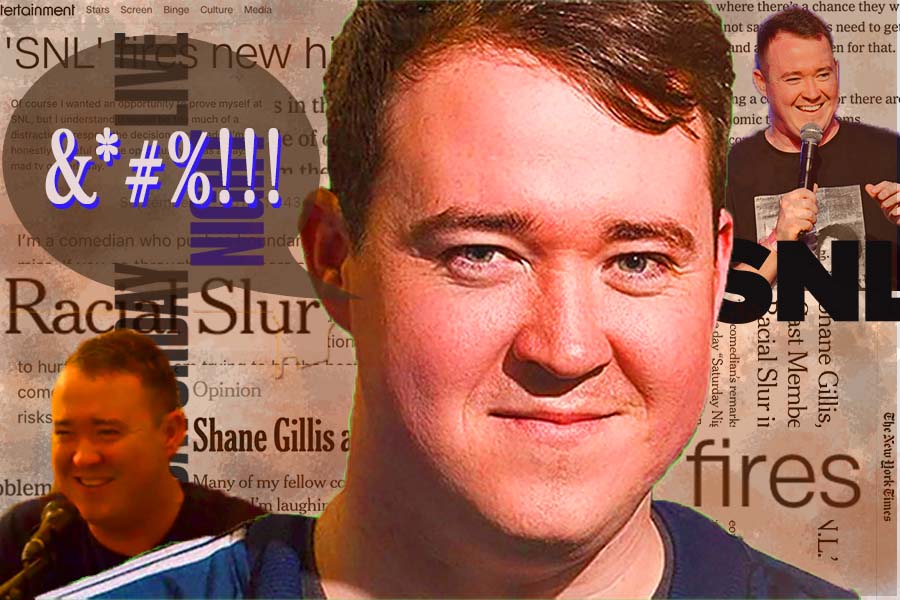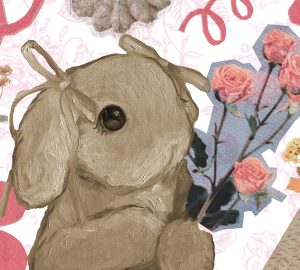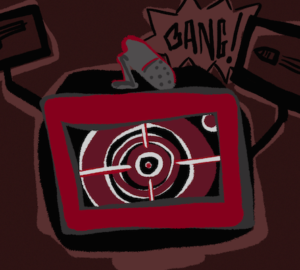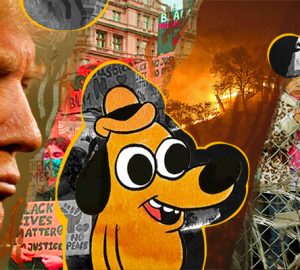
On Monday, Sept. 16, SNL announced the decision to drop new cast member comedian Shane Gillis, who they had hired just five days prior. The decision was made based on the discovery of a podcast made in 2018 in which Gillis liberally employed xenophobic slurs. In response to this decision, Gillis claimed on Twitter that he is “a comedian who pushes boundaries,” one who takes “risk.”
Immediately following SNL’s termination decision was a wave of criticism coming from comedians in defense of the First Amendment, in rebuke of political correctness, and in protest of the “cancel culture.”
Numerous articles in big publications have already dissected the situations with a hundred different takes by now. Among the opinions, here are the ones I most agree with:
- Shane Gillis’s racist comments were simply racist comments. They are not automatically jokes just because he is a comedian.
- Gillis is free to say whatever he wants and claim afterward it was political valor, but the truth remains that he is by no means brave.
- While the decision might seem unfair to Gillis, keeping him on would most certainly be unfair to other cast members who belong in groups he openly insulted.
That being said, what I’m really interested in is the implication this has on how we view comedy writing as a whole — including comedy in movies, TV series, books and in performing arts like stand-up comedy. It is the muddy waters through which the Western society has been hopelessly trying to navigate for years: the demand for equality from all groups of people had sprung onto them so suddenly, and within a twinkle of an eyes all kinds of funny things was offensive in someone in some unforgivable kind of way. Or at least, this is the vision that many critics of “cancel culture” present to us: a dystopia in which the simplest thing is turned into a political minefield where, every two seconds, the mines would sprout legs and scuttle elsewhere, making it safe passage impossible.
There is a point to that, but at the same time, there isn’t much of a point.
Is there an objective way to judge what is offensive and what isn’t? I think not — each of us has different experiences that constitute different senses of judgement. Besides, offensiveness occurs when you’re taking something seriously. “I mean, just the whole idea of taking comedy seriously is comedic,” said dramatic writing professor Daniel Rosen, of Dramatic Writing, who I had come to for advice. To a degree, I agree. But the fact remains that in every joke there is a butt of the joke, and too often marginalized people have sat down in anticipation just to feel their faces heat up in ridiculous shame when, over and over, the joke falls on them, often for demeaning stereotypes. To human beings with beating hearts, sometimes it’s not that easy to brush it off with the rationalization that it is just a joke, and the comics rarely ever mean it. But how would they know for sure? How would they know that they’re not subscribing to a person that truly looks down on them?
But then again, can the comic be blamed for this? If the audience finds him unsavory, they can always leave.
The relationship between comedy and its audience is laden with responsibility. The comedy is responsible for its audience entertainment; the audience, on the other hand, is responsible for finding the right comedy for their taste.
“It depends on what you’re writing for,” said Rosen, who teaches dramatic writing. “If you’re writing for a Netflix show like “Fleabag”, which has a different kind of comedy, versus like Home Improvement. […] Like “Shameless” is a very dark comedy […] where people expect that kind of comedy. […] But you don’t expect to turn on “Modern Family” and see some horrible racist jokes about stereotypes.”
This way of judging also applies to comedy that did not age well. Even the beloved show “Friends” has in recent years come under fire for having an unrealistic and overwhelmingly white cast. Should we persecute the show for this? Should we ignore the face value problem? “I think you’ve got to accept it for the time that it was in,” said Rosen. And this sounds true for all the movie critics out there (and also true for Gillis’s critics – his podcast was from 2018, not 1970). Context is important. Society is ever-changing and ever complicating, but for this exact reason, no one can be condemned for pointing out faults of past comedies. Society was complicated then, it is complicated now, and calling out the wrongs that we have made in the past is the only way for us to move on, to stop silencing marginalized groups by ruthless humor before they even get a chance to speak. Of course, what I’m referring to absolutely not the destruction of someone’s career over a remark they made in the age of ignorance. Calling out wrongs and slaughtering wrongdoers are very different things, and cannot be grouped together under the title of “cancel culture.” Do we not have a right to correct ignorance? The right to speak our minds? It is true that comedy shouldn’t always be taken seriously, but do we not have a right to be concerned when the comedies, so much more influential than people admit them to be, construct incorrect public perceptions of us?
What people find funny is a reflection of their opinions. If the dominant group of society find a racist joke funny, then it isn’t too big a leap to assume that things aren’t going so well for the humiliated race.
The world is getting more politically correct, that is true. But, it is also getting more aware of injustices. “A lot of these comics use social media to their advantages to become big stars and sell tickets. So if you’re going to use it for that, you have to realize that if you say something bad or wrong, it can turn on you in a second. So I don’t think you can really blame anybody if you say something stupid,” added Rosen.
Society is forever trying to navigate morality, and it stumbles, yes, but it often ends up closer to the right and further from the wrong. And it has picked up speed. Those who don’t want to get left behind should consider catching up.
























